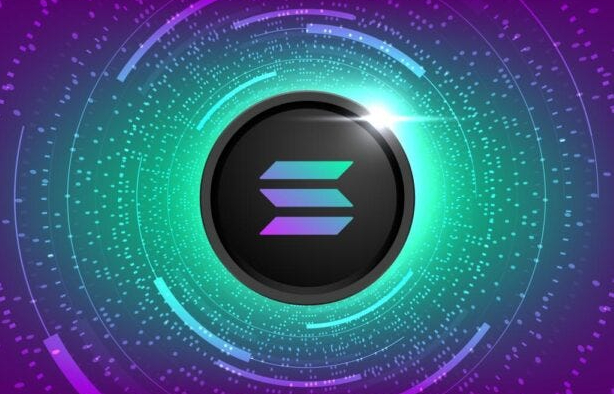-
 Bitcoin
Bitcoin $84,135.7201
0.87% -
 Ethereum
Ethereum $1,856.7400
-0.02% -
 Tether USDt
Tether USDt $0.9999
0.01% -
 XRP
XRP $2.0830
-0.48% -
 BNB
BNB $599.6471
-1.52% -
 Solana
Solana $124.1742
-1.63% -
 USDC
USDC $1.0000
0.00% -
 Dogecoin
Dogecoin $0.1685
-0.86% -
 Cardano
Cardano $0.6668
-0.74% -
 TRON
TRON $0.2373
1.25% -
 Toncoin
Toncoin $3.9998
-2.25% -
 Chainlink
Chainlink $13.4300
-2.39% -
 UNUS SED LEO
UNUS SED LEO $9.4081
2.84% -
 Stellar
Stellar $0.2651
-0.61% -
 Avalanche
Avalanche $18.9065
-2.21% -
 Sui
Sui $2.3226
0.33% -
 Shiba Inu
Shiba Inu $0.0...01220
-4.19% -
 Hedera
Hedera $0.1637
-1.21% -
 Polkadot
Polkadot $4.0401
-2.75% -
 Litecoin
Litecoin $81.7427
-3.19% -
 MANTRA
MANTRA $6.2137
-1.54% -
 Bitcoin Cash
Bitcoin Cash $304.6167
-1.46% -
 Bitget Token
Bitget Token $4.5737
-0.87% -
 Dai
Dai $1.0001
0.02% -
 Ethena USDe
Ethena USDe $0.9998
0.01% -
 Pi
Pi $0.6840
-4.49% -
 Hyperliquid
Hyperliquid $13.0177
-2.77% -
 Monero
Monero $215.7064
-0.75% -
 Uniswap
Uniswap $6.0376
-1.26% -
 Aptos
Aptos $5.2618
-0.89%
What is SOL coin? A comprehensive introduction to SOL coin project in one article
Solana's native coin, SOL, powers the Solana blockchain, supporting network transactions, staking rewards, and governance, while offering high speed, low fees, and robust security.
Oct 02, 2024 at 01:36 am

What is SOL Coin? A Comprehensive Introduction to the SOL Coin Project
1. Understanding SOL Coin
SOL is the native cryptocurrency of the Solana blockchain, a high-performance blockchain platform known for its speed, scalability, and security.
2. The Solana Ecosystem
- Consensus Mechanism: Solana utilizes a novel consensus mechanism called Proof-of-History (PoH), which records the order of events without requiring complex computations. This enables Solana to process transactions at a remarkable speed.
- Sharding: Solana employs sharding, where the network is divided into smaller partitions, allowing multiple transactions to be verified simultaneously, increasing throughput.
- Virtual Machine: Solana's runtime environment runs on a virtual machine called the Solana Virtual Machine (SVM), optimized for efficient execution of smart contracts.
3. SOL Coin Utility
- Network Fees: SOL is used as a gas fee to pay for network transactions and smart contract operations.
- Staking: SOL holders can stake their coins to support the network and earn rewards.
- Governance: SOL serves as a governance token, allowing holders to participate in decision-making processes for the Solana ecosystem.
4. Value Proposition
- High Speed: Solana can process thousands of transactions per second, making it one of the fastest blockchains available.
- Low Fees: Transaction fees on Solana are significantly lower compared to other popular blockchains like Ethereum.
- Scalability: Its sharding mechanism allows Solana to handle increasing transaction volume without sacrificing speed or performance.
- Security: PoH and a combination of other security features provide a robust framework against malicious attacks.
5. SOL Token Distribution
- Total Supply: 489 million SOL
- Initial Distribution: 26% distributed through public and private sales
- Team and Foundation Allocation: 16% allocated to the Solana Foundation and development team
- Staking Rewards: Approximately 65% of the remaining supply is allocated for staking rewards
6. Current Status and Future Prospects
- Market Capitalization: As of January 2023, SOL has a market capitalization of over $40 billion, ranking among the top 10 cryptocurrencies.
- Partnership and Integrations: Solana has partnered with major DeFi platforms, such as Serum and Raydium, and has seen significant adoption in the NFT space.
- Ecosystem Growth: The SOL ecosystem continues to expand with new projects and applications building on the Solana blockchain.
7. Key Risks to Consider
- Competition: Solana faces competition from other high-performance blockchains, such as Polkadot and Cosmos.
- Scalability Challenges: While Solana can theoretically handle high transaction volumes, it has not been fully tested at scale.
- Market Volatility: SOL, like other cryptocurrencies, is subject to price fluctuations and market risks.
Disclaimer:info@kdj.com
The information provided is not trading advice. kdj.com does not assume any responsibility for any investments made based on the information provided in this article. Cryptocurrencies are highly volatile and it is highly recommended that you invest with caution after thorough research!
If you believe that the content used on this website infringes your copyright, please contact us immediately (info@kdj.com) and we will delete it promptly.
- Ethereum (ETH) Price Prediction: Whale Activity and Market Sentiment Amid Volatility
- 2025-04-02 15:35:12
- The Best VPNs for 2025: Our Top 3 Picks
- 2025-04-02 15:35:12
- The cryptocurrency market shows restrained activity as the United States prepares to issue new tariffs announcements.
- 2025-04-02 15:30:12
- Top Stablecoin Issuer Circle Officially Files for IPO
- 2025-04-02 15:30:12
- Stablecoin giant Circle (USDC) is gearing up for its Initial Public Offering (IPO)
- 2025-04-02 15:25:12
- Dogecoin (DOGE) Stretched Toward Resistance Levels as Bitcoin (BTC) Extends Its Bullish Momentum
- 2025-04-02 15:25:12
Related knowledge

What is Ethereum’s Slashing mechanism and how to punish malicious behavior?
Feb 20,2025 at 03:08am
Key PointsOverview of slashingDifferent types of slashing in EthereumIncentives and consequences of slashingIdentifying and reporting slashed validatorsOngoing discussions and potential improvementsEthereum's Slashing Mechanism: Punishing Malicious BehaviorEthereum's slashing mechanism is an essential tool for ensuring network security and punishing mal...

What is the verifier node of Ethereum and how to become a verifier?
Feb 19,2025 at 06:00pm
The Verifier Node of Ethereum: A Comprehensive GuideKey Points:What is a Verifier Node?How to Become a Verifier NodeResponsibilities and Rewards of a Verifier NodeMinimum Requirements for Becoming a Verifier NodePotential Difficulties in Running a Verifier Node1. What is a Verifier Node?A Verifier Node is an independent entity on the Ethereum network th...

What is Ethereum’s staking, and how to participate and earn money?
Feb 19,2025 at 04:37pm
Key Points:Understanding Ethereum's Staking MechanismSteps to Participate in StakingBenefits and Rewards of StakingSecurity and Risk ConsiderationsTechnical Requirements and Hardware OptionsPotential Challenges and Troubleshooting TipsFAQs on Ethereum StakingWhat is Ethereum's Staking?Proof-of-Stake (PoS) is a consensus mechanism used in blockchain netw...

What is Ethereum’s DAO (Decentralized Autonomous Organization) and how does it work?
Feb 20,2025 at 03:12am
Key PointsDefinition and Structure of a DAOGovernance and Decision-Making in DAOsBenefits and Use Cases of DAOsChallenges and Limitations of DAOsWhat is Ethereum's DAO (Decentralized Autonomous Organization) and How Does It Work?Definition and Structure of a DAOA Decentralized Autonomous Organization (DAO) is an innovative governance and management fram...

What is Ethereum's multi-signature wallet and how to improve security?
Feb 20,2025 at 02:18pm
Key Points:Understanding the Concept of a Multi-Signature WalletBenefits and Drawbacks of Multisig WalletsRequirements for Setting Up a Multisig WalletStep-by-Step Guide to Generating a Multisig WalletImplementing Strategies for Enhanced Security1. Understanding the Concept of a Multi-Signature WalletA multi-signature (multisig) wallet in the Ethereum e...

What is Ethereum's oracle and how to provide data for smart contracts?
Feb 21,2025 at 01:30am
Key Points:Understanding the concept of oracles in EthereumExploring different types of oraclesDetailed guide on how to provide data for smart contractsAddressing potential challenges and considerationsWhat is Ethereum's Oracle?Oracles are crucial components in the Ethereum ecosystem, enabling smart contracts to access real-world data and off-chain even...

What is Ethereum’s Slashing mechanism and how to punish malicious behavior?
Feb 20,2025 at 03:08am
Key PointsOverview of slashingDifferent types of slashing in EthereumIncentives and consequences of slashingIdentifying and reporting slashed validatorsOngoing discussions and potential improvementsEthereum's Slashing Mechanism: Punishing Malicious BehaviorEthereum's slashing mechanism is an essential tool for ensuring network security and punishing mal...

What is the verifier node of Ethereum and how to become a verifier?
Feb 19,2025 at 06:00pm
The Verifier Node of Ethereum: A Comprehensive GuideKey Points:What is a Verifier Node?How to Become a Verifier NodeResponsibilities and Rewards of a Verifier NodeMinimum Requirements for Becoming a Verifier NodePotential Difficulties in Running a Verifier Node1. What is a Verifier Node?A Verifier Node is an independent entity on the Ethereum network th...

What is Ethereum’s staking, and how to participate and earn money?
Feb 19,2025 at 04:37pm
Key Points:Understanding Ethereum's Staking MechanismSteps to Participate in StakingBenefits and Rewards of StakingSecurity and Risk ConsiderationsTechnical Requirements and Hardware OptionsPotential Challenges and Troubleshooting TipsFAQs on Ethereum StakingWhat is Ethereum's Staking?Proof-of-Stake (PoS) is a consensus mechanism used in blockchain netw...

What is Ethereum’s DAO (Decentralized Autonomous Organization) and how does it work?
Feb 20,2025 at 03:12am
Key PointsDefinition and Structure of a DAOGovernance and Decision-Making in DAOsBenefits and Use Cases of DAOsChallenges and Limitations of DAOsWhat is Ethereum's DAO (Decentralized Autonomous Organization) and How Does It Work?Definition and Structure of a DAOA Decentralized Autonomous Organization (DAO) is an innovative governance and management fram...

What is Ethereum's multi-signature wallet and how to improve security?
Feb 20,2025 at 02:18pm
Key Points:Understanding the Concept of a Multi-Signature WalletBenefits and Drawbacks of Multisig WalletsRequirements for Setting Up a Multisig WalletStep-by-Step Guide to Generating a Multisig WalletImplementing Strategies for Enhanced Security1. Understanding the Concept of a Multi-Signature WalletA multi-signature (multisig) wallet in the Ethereum e...

What is Ethereum's oracle and how to provide data for smart contracts?
Feb 21,2025 at 01:30am
Key Points:Understanding the concept of oracles in EthereumExploring different types of oraclesDetailed guide on how to provide data for smart contractsAddressing potential challenges and considerationsWhat is Ethereum's Oracle?Oracles are crucial components in the Ethereum ecosystem, enabling smart contracts to access real-world data and off-chain even...
See all articles

























































































